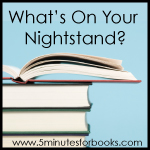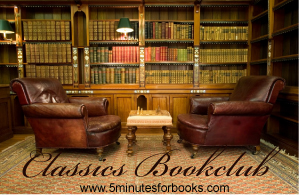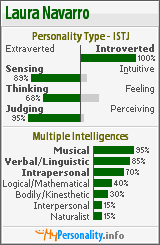I read this in July because a friend loaned it to me she was so insistent that I should read it. I had seen the name around for several months so it was on my TBR list but not near the top. What a wonderful book – I’m so glad I moved it up the list and read it. I went out and bought a copy of my own so I could reread it and lend it to family and friends. My mom has it right now, my aunt is next on the list to read it.
One thing I did was create a character list. Since it wasn’t the normal narrative format I had to focus a little harder on who was doing the talking by paying attention to who the letter was to and from. But I quickly got this habit down. I recently read The Painted Veil by Somerset Maugham and my complaint with that book was that he described each character in such detail that you didn’t have to form opinions about them, he provided them already formed. This book gave you room to get to know the characters by their actions and words and develop opinions in detail. I much prefer that. And the characters were consistent, no surprise character defects or anything forced to make the plot work.
I loved the relationship between Sophie, Sidney, and Juliet – even without letters from Sophie, you can tell what she is asking, telling, and wondering about – it’s clear they are all close and looking out for the best for each other.
I had to revise my view of Dawsey, for some reason I pictured him older than he obviously is. I loved his direct and shy way of communicating.
Questions from 5 Minutes for Books:
~Is this your first book of letters — fiction or non-fiction? If so, do you like this particular writing style? Why or why not?
I am sure I have read a book of letters before but it isn’t coming to mind. It can be difficult to pull off, causing difficulty keeping the characters straight and the timeline clear. But it can also be fun, like sneaking a peak at someone’s life.
~Do you think Guernsey would have been the same if the author had employed the typical fiction narrative? Would it have been better, or worse?
The format of letters was great. It could have been a good story in regular narrative, but this way worked so well, giving a sense of passing time and letting each voice come out.
~Who is your favorite character? Why?
I love Amelia – she is practical and wise and generous in how she sees others.
~How does the reading that brings the Society’s members together become more than an alibi? What do their literary choices say about each character?
Reading widens the world and provides not just an escape but growth and peace. They certainly needed all of that while under the occupation. They had limited options (unlike all of us) but still found their favorites that suited them. I also thought it very true that men who work with the land and live according to the seasons can be deep thinkers. I loved that Clovis found Wilfred Own and Wordsworth.
~In her last letter, Juliet says that she is …in a constant state of surprise these days. What do you think she means by that?
What I think this means: The war had closed a lot of people down, turning inward and staying safe. Juliet, just like the islanders, is finding new life and rediscovering emotions and the pleasures of growing close to people again. And after her misfires, she is learning what it is to truly love and be loved.









